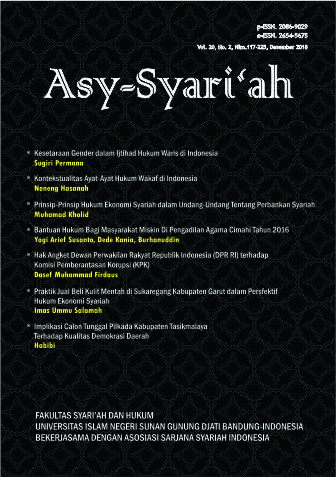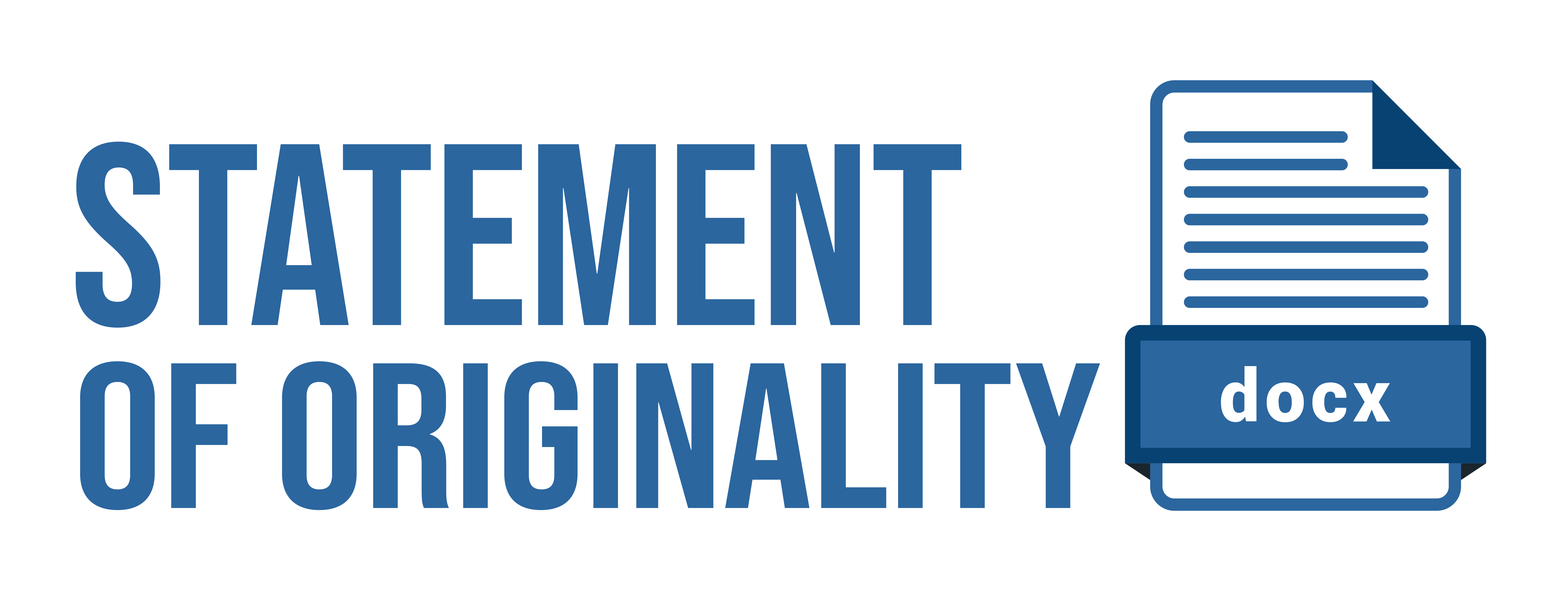HAK ANGKET DEWAN PERWAKILAN RAKYAT REPUBLIK INDONESIA (DPR RI) TERHADAP KOMISI PEMBERANTASAN KORUPSI (KPK)
The Inquiry Right of the Indonesian House of Representatives Toward the Corruption Eradication Commission
DOI:
https://doi.org/10.15575/as.v20i2.3028Abstract
Abstract
Indonesia as a constitutional and democratic state has three governmental branches which are executive, legislative and judicial power; and executed on the check and balance principle. One of the check and balance principles implementation can be seen in the House of Representatives of Indonesia (DPR)’s Parliamentary Scrutiny function which is mandated by the 1945 Constitution of the Republic of Indonesia (UUD 1945), the right of inquiry to investigate all forms of implementation of laws and government policies that are allegedly contrary to the legislation. Recently the rights had been applied to evaluate KPK (corruption eradication commission) as an independent institution and free from any authority. Substantially the inquiry right was applied to evaluate KPK regarding the following aspects: institutional, authority, human resources, and expenditure budgets. Through legal tracing on related laws and regulations, that were descriptively analyzed regarding the DPR's inquiry right implementation towards KPK; it was found the DPR's inquiry rights to the KPK is constitutionally regulated in Article 20A of the UUD 1945, Law Number 17 of 2014 Article 79 paragraph (1), (2) and (3) and Constitutional Court Decision Case No. 36 and 37 / PUU-XV / 2017. Based on those regulations, DPR has rights to ask for KPK’s accountability upon their duties and authority and KPK is obliged to respect and implement DPR recommendations produced from the inquiry rights.
Keywords:
People’s Representative Council, Rights of Inquiry, Corruption Eradication Commission
Â
Abstrak
Indonesia sebagai negara demokrasi kontitusional terdiri dari cabang kekuasaan eksekutif, legislatif, dan yudikatif berdasar prinsip check and balance. Wujud prinsip tersebut ada dalam ketatanegaraan Indonesia terlihat pada fungsi pengawasan DPR RI yang diamanatkan oleh UUD NRI Tahun 1945, antara lain melalui hak angket untuk menyelidiki segala bentuk pelaksanaan UU maupun kebijakan pemerintah yang diduga bertentangan dengan peraturan perundang-undangan. Salah satunya adalah hak angket yang ditujukan terhadap KPK sebagai lembaga bersifat independen dan bebas dari kekuasaan manapun. Secara subtantif pelaksanaan hak dilakukan untuk mengevaluasi KPK dari sisi kelembagan, kewenangan, sumber daya manusia hingga anggaran belanja. Melalui penelusuran peraturan perundang-undangan yang dianalisis secara deskriptif atas hak angket DPR terhadap KPK; ditemukan bahwa landasan hukum hak angket DPR terhadap KPK secara konstitusional diatur di dalam Pasal 20A UUD NKRI Tahun 1945, Undang-Undang Nomor 17 Tahun 2014 Pasal 79 ayat (1), (2) dan (3) dan Putusan MK No. Perkara 36 dan 37/PUU-XV/2017 . Atas dasar ketentuan tersebut, DPR berhak meminta pertanggungjawaban pelaksanaan tugas dan kewenangan KPK dan KPK sebagai lembaga penegak hukum harus menghormati dan melaksanakan rekomendasi yang telah dihasilkan pansus angket dan.
Kata Kunci:
DPR, Hak Angket, KPK
References
Buku
Assdiddiqie, Jimly, 2010, Pengantar Ilmu Hukum Tata Negara, Jakarta: Rajawali Pers
Budiardjo, Miriam, 1978, Dasar Dasar Ilmu Politik, Jakarta : Gramedia.
Huda, Ni‟matul, 2001, Hukum Tata Negara Indonesia, Jakarta : PT Raja Grafindo Persada.
Muhammad, Erwin, 2011, Pendidikan Kewarganegaraan Republik Indonesia, Bandung : PT Refika Aditama.
Soemantri, Sri. dkk, 1993, Ketatanegaraan Indonesia Dalam Kehidupan Politik Indonesia 30 Tahun kembali ke Undang-Undang Dasar 1945, Jakarta : Pustaka Sinar Harapan.
Tim ICCE UIN Jakarta, 2003, Pendidikan Kewarganegaraan (Civic Education) Demokrasi, Hak Asasi Manusia dan Masyarakat Madani, Jakarta : Prenada Media.
Wahjono, Padmo, 1983, Indonesia Negara Berdasarkan Atas Hukum, Jakarta : Ghalia Indonesia.
Perundang-Undangan
Undang-Undang Dasar Negara Republik Indonesia Tahun 1945.
Undang-Undang Nomor 17 Tahun 2014 Tentang Majelis Permusyawaratan Rakyat, Dewan Perwakilan Rakyat, Dewan Perwakilan Daerah, dan Dewan Perwakilan Rakyat Daerah
Putusan MK No. Perkara 36 dan 37/PUU-XV/2017
Internet
Novianti, Pusat Penelitian Badan Keahlian DPR RI, Kajian Singkat Terhadap Isu Aktual dan Strategis, Diakses tanggal 18 Juli 2018 Jam 21.00 WIB.
Syamsudin, Hak Angket DPR Terhadap KPK, Internet <http://www.hukumonline.com/ berita/baca/lt5948e3997c7ab/hak-angket-dpr-terhadap-kpk--sebuah-analisa-kri- tis-oleh-syamsuddin-radjab> diakses tanggal 12 Januari 2018 jam 16.50 WIB.
Downloads
Published
How to Cite
Issue
Section
Citation Check
License
Copyright (c) 2018 Jurnal Asy-Syari'ah

This work is licensed under a Creative Commons Attribution-ShareAlike 4.0 International License.
The author whose published manuscript approved the following provisions:
- Authors retain copyright and grant the journal right of first publication with the work simultaneously licensed under a Attribution-ShareAlike 4.0 International (CC BY-SA 4.0) License that allows others to share the work with an acknowledgment of the work's authorship and initial publication in this journal.
- Authors are able to enter into separate, additional contractual arrangements for the non-exclusive distribution of the journal's published version of the work (e.g., post it to an institutional repository or publish it in a book), with an acknowledgment of its initial publication in this journal.
- Authors are permitted and encouraged to post their work online (e.g., in institutional repositories or on their website) prior to and during the submission process, as it can lead to productive exchanges, as well as earlier and greater citation of published work (See The Effect of Open Access).






